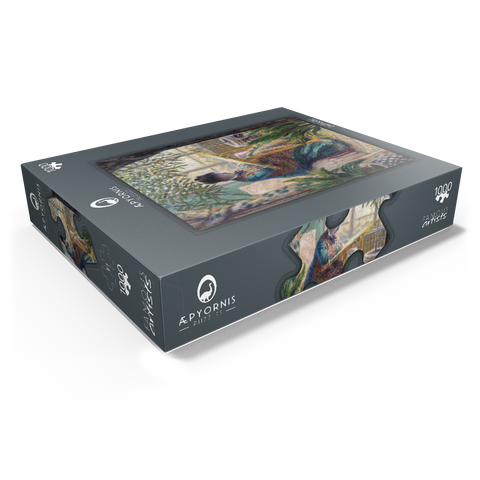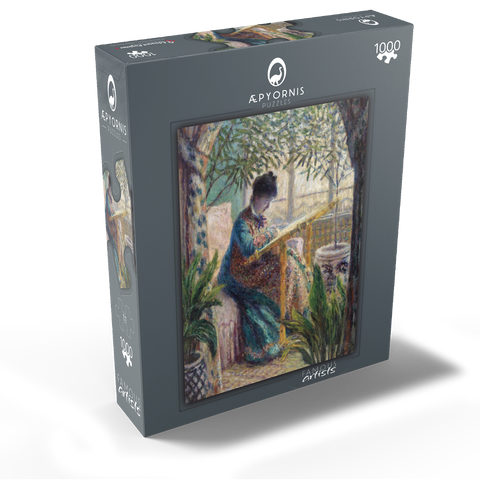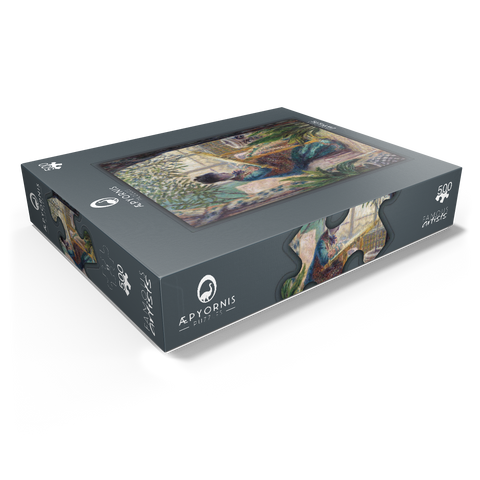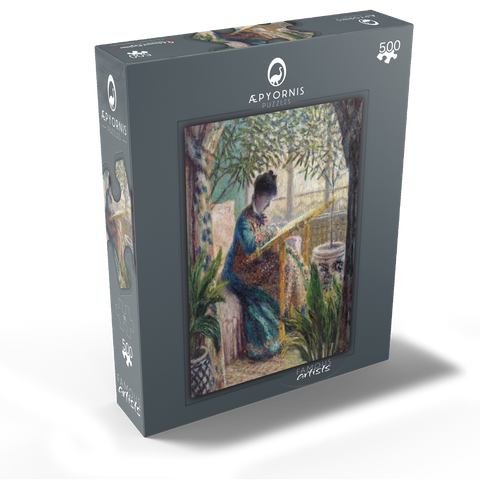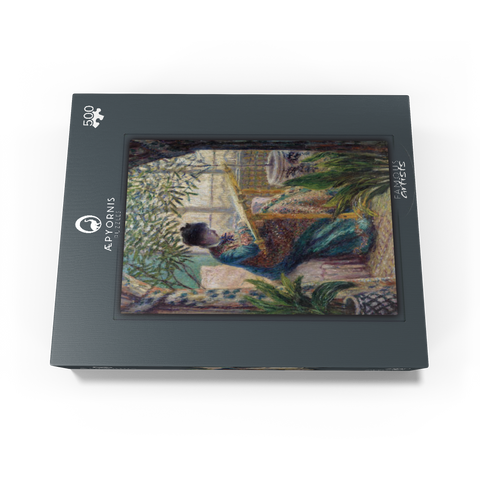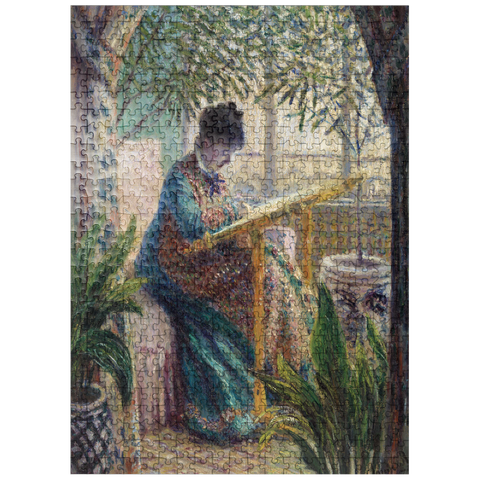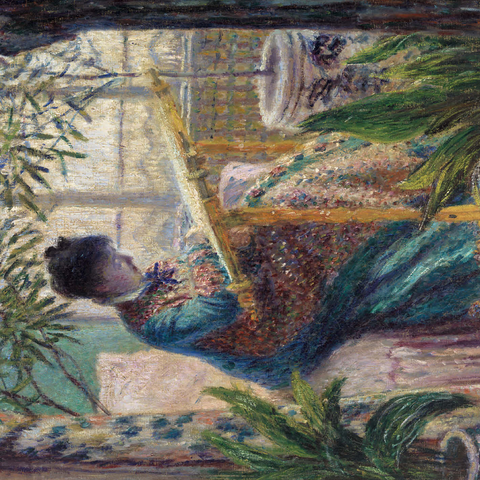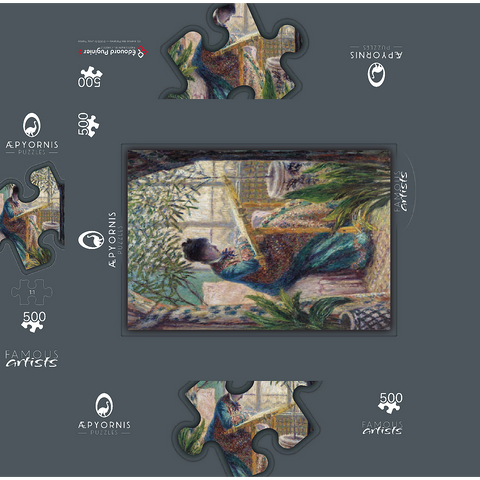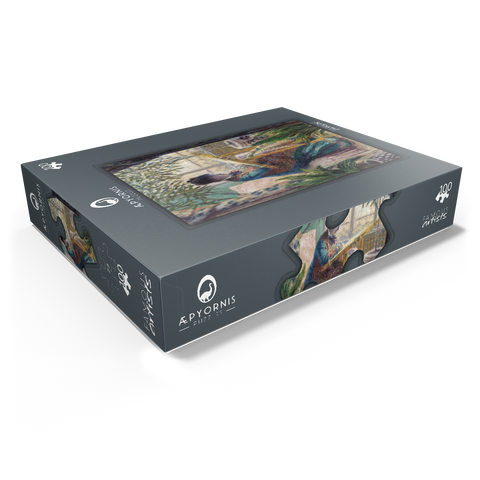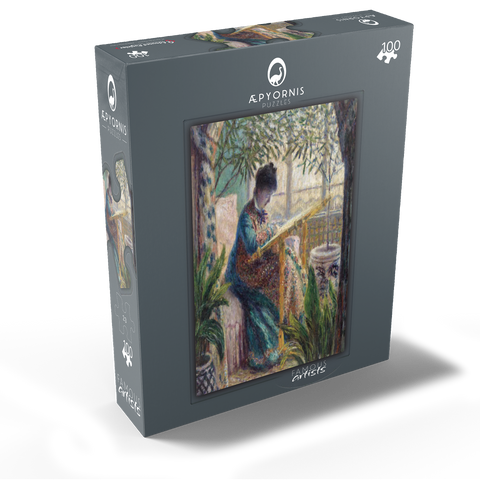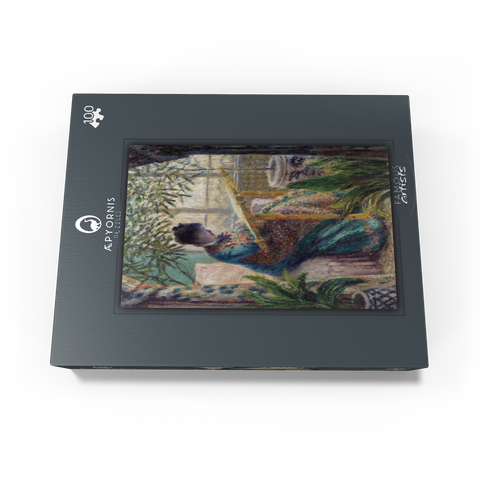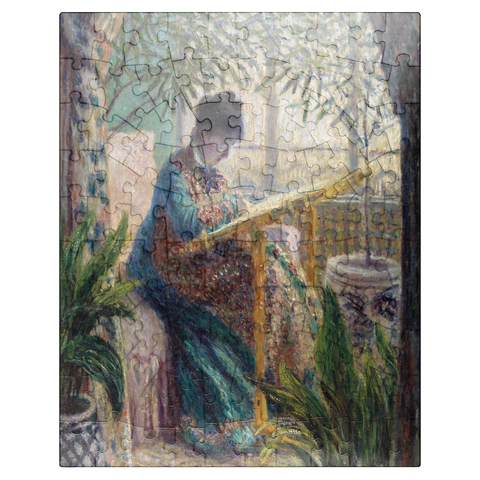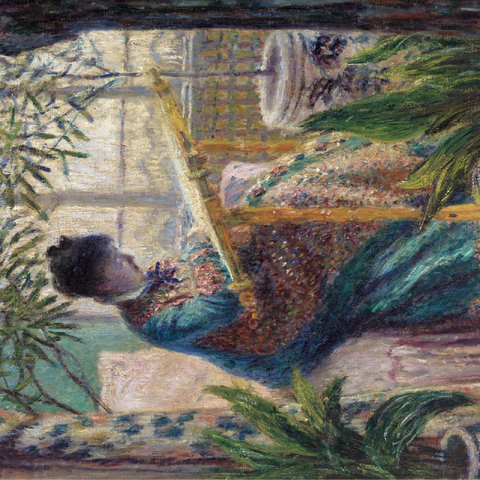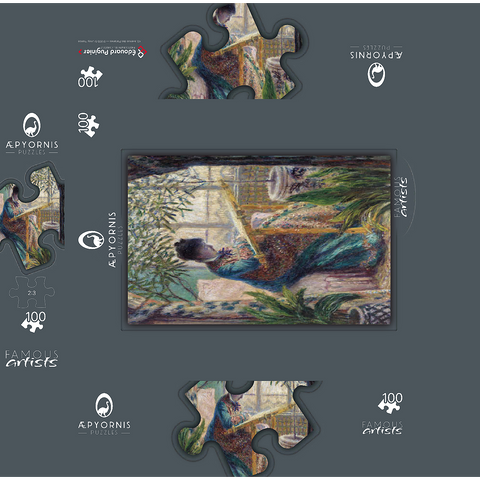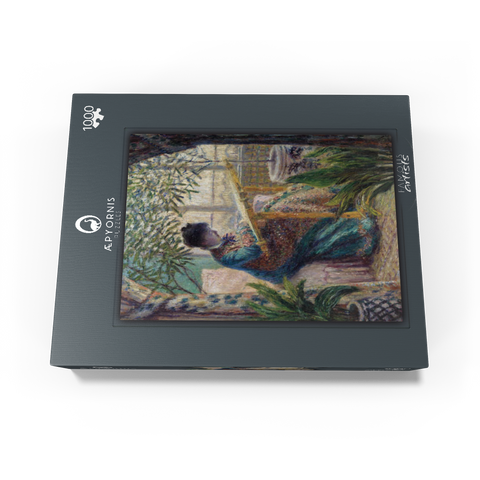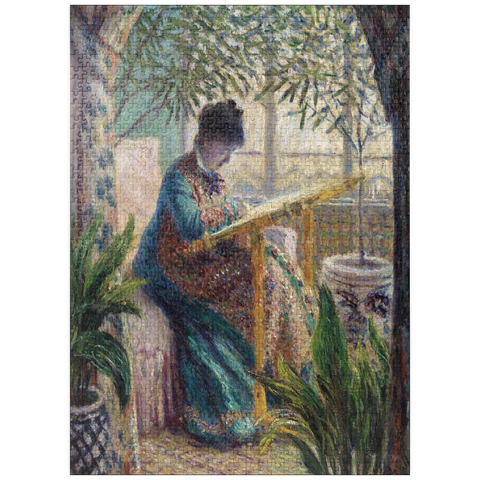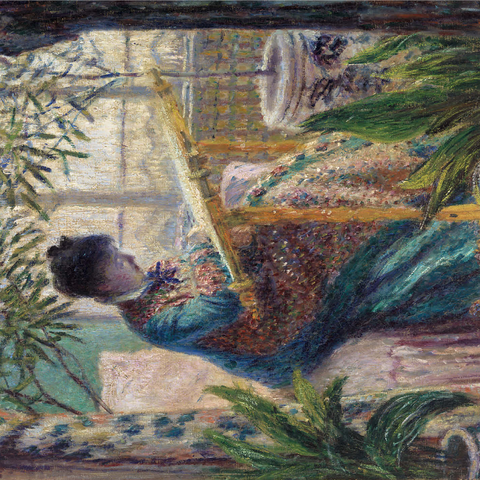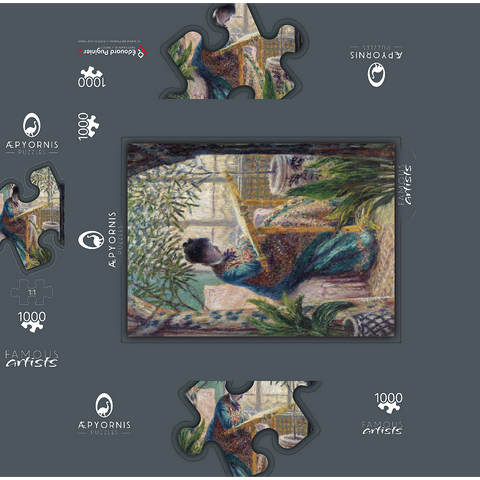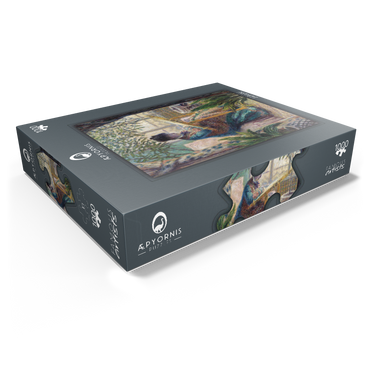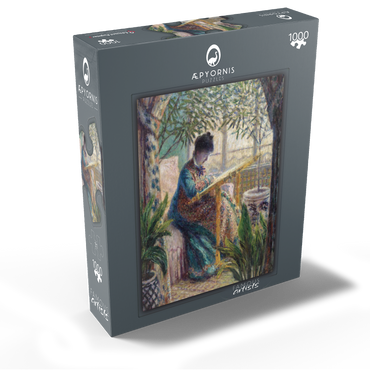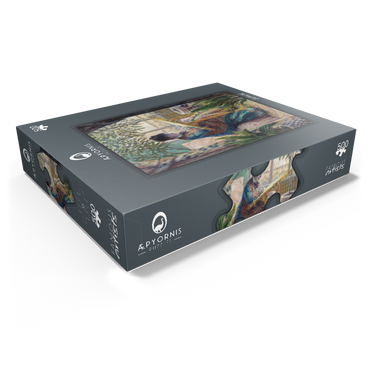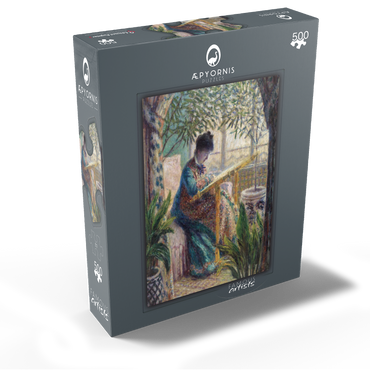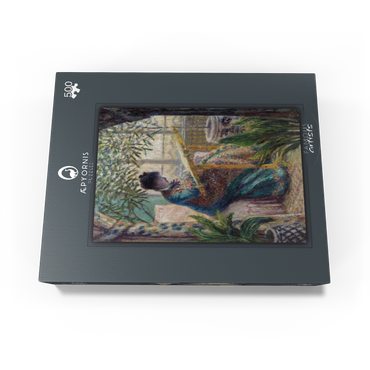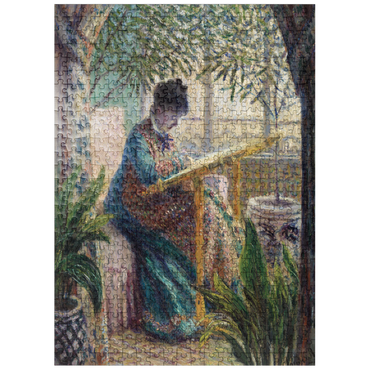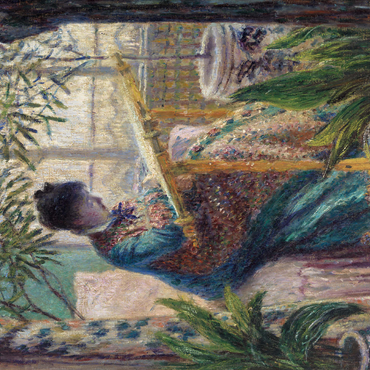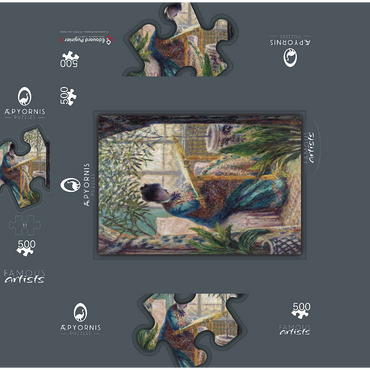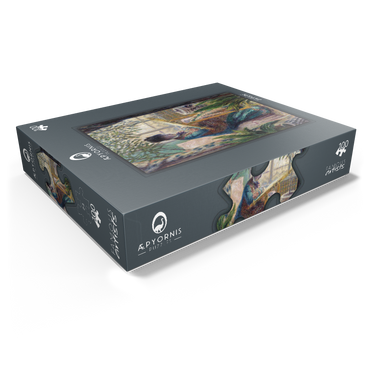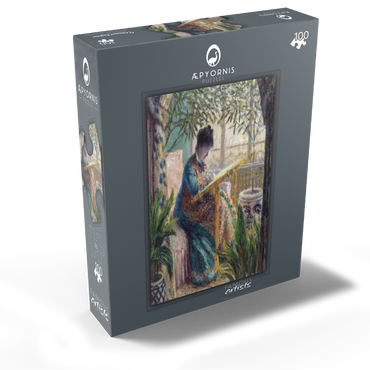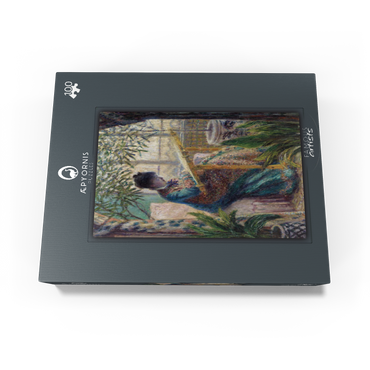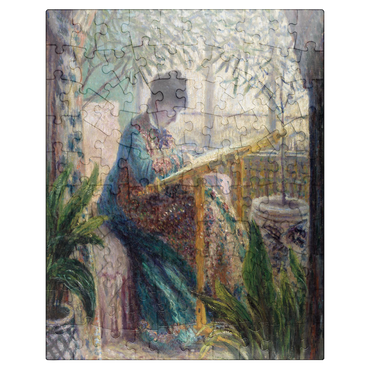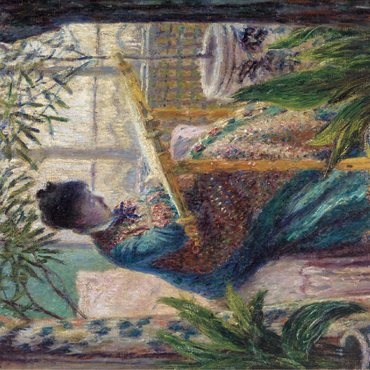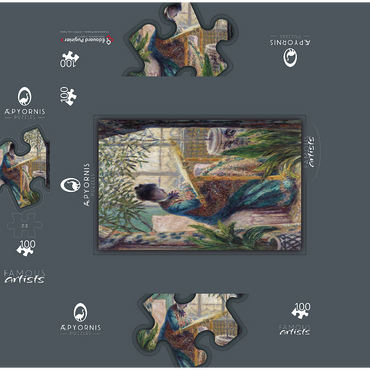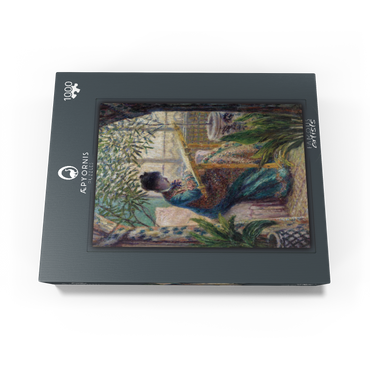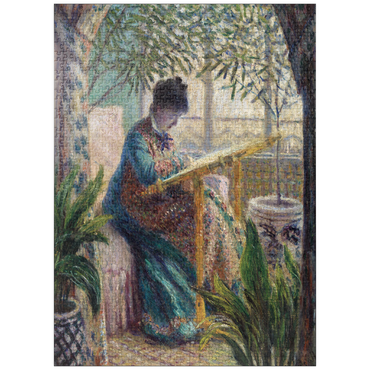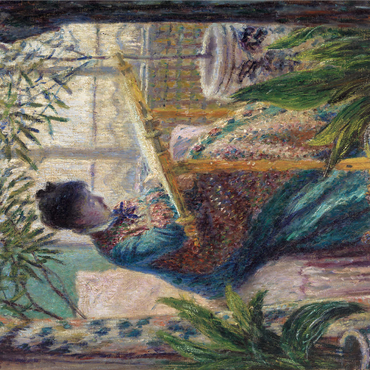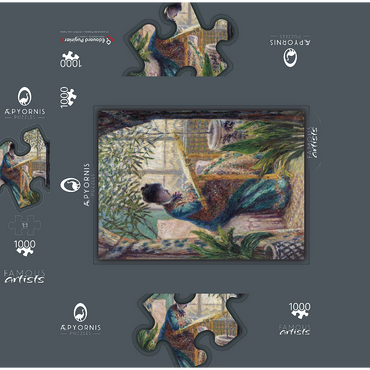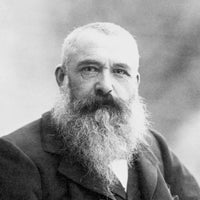
This jigsaw puzzle showcases a beautiful image of Madame Monet embroidering, as captured by the famous French Impressionist painter Claude Monet in 1875. The intimate portrait captures Madame Monet at work, with a delicate and graceful expression on her face as she concentrates on her embroidery.
This puzzle is a great activity for anyone interested in the life and work of Claude Monet and the Impressionist movement. As you piece together the puzzle, you'll have the opportunity to learn more about Madame Monet and her role in the Monet household, as well as the Impressionist movement and its cultural significance.
Whether you're an experienced puzzle-solver or new to the hobby, you'll enjoy the challenge and satisfaction of piecing together this beautiful image. Not only is this puzzle a fun and engaging activity, but it's also a great way to learn more about Claude Monet and the Impressionist movement. If you're looking for a fun and educational activity to do on your own or with friends and family, this puzzle featuring Madame Monet embroidering as captured by Claude Monet in 1875 is an excellent choice.
Piece by piece you put the puzzle together, together or alone you will achieve success. We print the puzzle motif on the lid of the box to help. Whether your puzzle fun should take place at home or on the road - everything is conceivable, because the pieces are placed directly on the cardboard of the frame. Since only a few punching lines are needed, you can perfectly set the scene for your chosen motif. Start now and give the gift of joy!
At first, motivation may be low — but the fun quickly sets in once the first pieces fall into place. In this version, 100 puzzle pieces are spread across the surface area of a typical 300-piece puzzle. As a result, each piece is larger, which can be especially helpful for both small and bigger hands. The sections of your image remain easy to recognize, so it’s best not to choose a motif that is too difficult. A photo with plenty of clear details works perfectly.
Our 300-piece puzzle introduces you to the subject of puzzles, it's a super starter. You will quickly feel a sense of achievement, you don't need too much stamina. The puzzler will be challenged, but not overwhelmed. Give it a try!
A puzzle with 500 pieces is for all those who are already puzzle fans and consider themselves skilled. The next step up would be 1000 pieces, but with 500 pieces you will reach success much faster, the difficulty level is medium. A 500-piece puzzle is a bit of a challenge for practised puzzlers, but experienced puzzlers will see it as a welcome change.
It's great for long summer evenings on the terrace, rainy afternoons in autumn or even cold winter days. Let's start having fun!
The photo jigsaw puzzle with 1000 pieces is a classic, it shows off your motif to great effect. You put the puzzle together piece by piece, it is an attractive challenge for puzzle fans. The design options are great, you can create your puzzle from predefined theme worlds or choose your own motif. You decide how difficult it will be by defining the motif. Let's go with a little challenge!
40 pieces puzzle
Gelegte Size:
ca. 23,0 x 24,0 cm
Größe Puzzle piece:
Ø 4,8 x 4,0 cm
Puzzle board:
ca. 2 mm

We provide financial compensation in the corresponding amount to support certified climate protection projects in partnership with “ClimatePartner”.
Safety instructions:
100 pieces puzzle
Size of the box:
10” x 8” x 1.875”
Laid size:
13.25” x 16.56”
Size puzzle pieces:
approx. 2” x 1 3/8”
Puzzle board:
approx. 0.08”

We provide financial compensation in the corresponding amount to support certified climate protection projects in partnership with “ClimatePartner”.
Safety instructions:
300 pieces puzzle
Size of the box:
10” x 8” x 1.875”
Laid size:
19.25” x 26.625”
Size puzzle pieces:
Ø 2.2” × 1.4”
Puzzle board:
approx. 0.08”

We provide financial compensation in the corresponding amount to support certified climate protection projects in partnership with “ClimatePartner”.
Safety instructions:
The product named above complies with the following regulations:
RL 2009/48/EG Richtlinie "Sicherheit von Spielzeug"
EN 71-1:2018-12
DIN EN 71-1:2014+A1:2018
(Mechanik/Physik)
EN 71-3:2019-08
DIN EN 71-3:2019
(Migration)
EN 71-9:2007-09
DIN EN 71-9:2005+A1:2007
(Organische Verb.)
REACH 1907/2006
500 pieces puzzle
Box size:
10” x 8” x 1.875”
Laid size:
19.25” x 26.625”
Size puzzle pieces:
approx. 1.6” × 1.1”
Puzzle board:
approx. 0.08”

We provide financial compensation in the corresponding amount to support certified climate protection projects in partnership with “ClimatePartner”.
Safety instructions:
1000 pieces puzzle
Box size:
10” x 8” x 1.875”
Laid size:
19.25” x 26.625”
Size puzzle pieces:
approx. 1.2” × 0.8”
Puzzle board:
approx. 0.08”

We provide financial compensation in the corresponding amount to support certified climate protection projects in partnership with “ClimatePartner”.
Safety instructions:

Æpyornis
Æpyornis is a puzzle publisher that specializes in faithful photos and artworks of famous artists. This means that the artworks are neither fake nor over-processed. They are realistic and also very versatile.Artist "Claude Monet"
Claude Monet (* November 14, 1840 in Paris; † December 5, 1926 in Giverny, born Oscar-Claude Monet) was an important French painter whose middle creative period is assigned to the style of Impressionism.
The early work up to the mid-1860s includes realistic paintings, some of which Monet exhibited at the Paris Salon. In the late 1860s, Claude Monet began to paint Impressionist paintings. An example of his paintings of this creative period is Impression, Sunrise, a harbor view of Le Havre, which gave the name to the whole movement. Thus he moved away from the taste of the time, influenced by the traditional art academies, which worsened his financial situation.
In the 1870s, Monet participated in some of the Impressionist exhibitions, in which artists such as Pierre-Auguste Renoir and Edgar Degas also took part, and was promoted in particular by the art dealer Paul Durand-Ruel.
Monet's financial situation remained strained until the 1890s. During this time, Monet developed the concept of the series, according to which he painted a motif in different light moods. In addition, he began to lay out his famous garden in Giverny, which he subsequently also used as a motif for his paintings.

